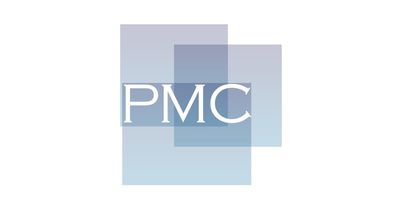Apple Won't Have to Pay $309M After Judge Accuses Patent Troll of Abusing System to Fleece Tech Companies
Apple today scored a victory in an ongoing patent dispute with Personalized Media Communications (PMC), with the judge overseeing the case tossing out the $308.5 million verdict that Personalized Media Communications won in March, reports Bloomberg.

Apple was a victim of PMC's plan to milk the tech industry for high royalties on old ideas, U.S. District Judge Rodney Gilstrap said when delivering the verdict. The judge decided that PMC's patent for digital rights management is unenforceable because the company delayed its application with the U.S. Patent and Trademark Office in an attempt to get more money.
PMC filed hundreds patent applications in the 1980s and 1990s, but no patents were awarded until 2010. The company took advantage of a loophole that allowed for an indefinite application process and then a patent valid for 17 years. This was addressed in 1995, but didn't apply to the patents used against Apple because they were filed earlier.
PMC delayed receiving its patents until after the technology in the patent had already been adopted, letting it make more money from tech companies.
Internal documentation from PMC suggested the company had thought that Apple would be a "natural candidate" to target with delayed patents, along with Intel, IBM, and Microsoft.
PMC won a $308.5 million verdict against Apple in March after a jury said that Apple infringed on DRM patents with its FairPlay technology that is used to distribute encrypted content through iTunes, the App Store, and Apple Music.
Popular Stories
The long wait for an Apple Watch Ultra 3 appears to be nearly over, and it is rumored to feature both satellite connectivity and 5G support.
Apple Watch Ultra's existing Night Mode
In his latest Power On newsletter, Bloomberg's Mark Gurman said that the Apple Watch Ultra 3 is on track to launch this year with "significant" new features, including satellite connectivity, which would let you...
The iPhone 17 Pro Max will feature the biggest ever battery in an iPhone, according to the Weibo leaker known as "Instant Digital."
In a new post, the leaker listed the battery capacities of the iPhone 11 Pro Max through to the iPhone 16 Pro Max, and added that the iPhone 17 Pro Max will feature a battery capacity of 5,000mAh:
iPhone 11 Pro Max: 3,969mAh
iPhone 12 Pro Max: 3,687mAh...
Apple's next-generation iPhone 17 Pro and iPhone 17 Pro Max are just over two months away, and there are plenty of rumors about the devices.
Below, we recap key changes rumored for the iPhone 17 Pro models.
Latest Rumors
These rumors surfaced in June and July:Apple logo repositioned: Apple's logo may have a lower position on the back of the iPhone 17 Pro models, compared to previous...
The upcoming iPhone 17 Pro and iPhone 17 Pro Max are rumored to have a slightly different MagSafe magnet layout compared to existing iPhone models, and a leaked photo has offered a closer look at the supposed new design.
The leaker Majin Bu today shared a photo of alleged MagSafe magnet arrays for third-party iPhone 17 Pro cases. On existing iPhone models with MagSafe, the magnets form a...
Apple's position as the dominant force in the global true wireless stereo (TWS) earbud market is expected to continue through 2025, according to Counterpoint Research.
The forecast outlines a 3% year-over-year increase in global TWS unit shipments for 2025, signaling a transition from rapid growth to a more mature phase for the category. While Apple is set to remain the leading brand by...
iOS 26 and iPadOS 26 add a smaller yet useful Wi-Fi feature to iPhones and iPads.
As spotted by Creative Strategies analyst Max Weinbach, sign-in details for captive Wi-Fi networks are now synced across iPhones and iPads running iOS 26 and iPadOS 26. For example, while Weinbach was staying at a Hilton hotel, his iPhone prompted him to fill in Wi-Fi details from his iPad that was already...
Apple today seeded the second betas of upcoming iOS 18.6 and iPadOS 18.6 updates to public beta testers, with the betas coming just a day after Apple provided the betas to developers. Apple has also released a second beta of macOS Sequoia 15.6.
Testers who have signed up for beta updates through Apple's beta site can download iOS 18.6 and iPadOS 18.6 from the Settings app on a compatible...




















